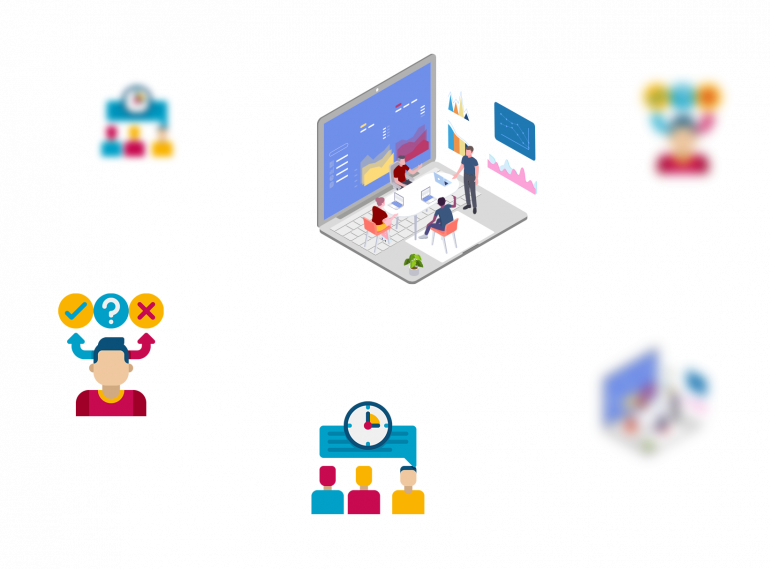What is Agile?
Agile project management and product development have been a trend in recent years. This way of thinking, supplemented by methods, procedures and techniques, has gained popularity thanks to its ability to adapt to a changing environment caused by market changes, new technologies, business models or gradual learning and clarification of mutual misunderstandings.
Where is Agile used?
Agile approaches are designed primarily for innovative types of projects in an unstable environment, where either the type of product we create does not yet exist and is less difficult to present or the requirements for a product that meets the specific needs of the customer are unclear and change dynamically. This is where the agile approaches are home and the most beneficial.
What are the benefits of Agile?
Typical benefits that this way of thinking can bring include:
- greater acceptance of the result by the user, because they were involved in the development,
- faster delivery of the first version (so-called time to market) – because we implement only a proven core of all ideas and thoughts,
- more motivated and productive implementation team, thanks to 100% time dedication, self-management and self-organization,
- higher product quality thanks to frequent and regular integrations and tests.
Implementation of agility in a company
Many companies try to apply agile principles even deeper than just their projects and go through the so-called agile transformation of the whole company, where we apply agile principles to all areas of company management from management, through operations, marketing, purchasing to HR and remuneration.
Every company has a different culture, customs, market, business context, products and services, employees, partners, technologies and processes, as well as different challenges to address, so the implementation of agile principles will always look different.
Often, when companies switch to agile scaling across multiple teams, departments, or business units, they have problems. The need for alignment, planning, cadence, roles, and communication that may have seemed easy among a dozen team members is becoming a challenging implementation for hundreds or even thousands of people. In these cases, accredited Scaled Agile (SAFe) courses will help ensure smooth agility adoption.
Agility in project management
An agile approach to project management is one that focuses on gradual and repetitive steps to complete projects. Partial parts of the project are carried out in short-term development cycles. This approach favors rapid delivery, adaptation to change and cooperation rather than top-down management and adherence to a set plan.
In agile processes, there is ongoing feedback that allows team members to adapt to the challenges that arise and the opportunity for stakeholders to communicate consistently. Although the agile approach was originally created for software development, it is now widely used in the implementation of many different types of projects and in the management of organizations.
PRINCE2 Agile® is the world’s most complete project management solution, combining agility and responsiveness with a clearly defined PRINCE2® framework. New best practice guidelines show how PRINCE2-enabled organizations can take advantage of this compatibility and equip them with the skills and processes they need to successfully deliver projects that meet customer requirements in today’s rapidly changing business environment:
- A combination of control and flexibility
- Clear project definitions
- Seamless integration
- Improved ability to react and adapt
Who PRINCE2 Agile is for:
The PRINCE2 Agile® project management courses are suitable for anyone delivering projects, large or small, in an agile context. It is a valuable training and certification scheme for anyone working in an agile project environment, whether it is a project manager, project support or part of a wider project team.
Course overview
Price from
800 EUR without VAT
Guaranteed
Best seller
Price from
1 050 EUR without VAT
Best seller
Price from
2 050 EUR without VAT
Price from
1 050 EUR without VAT
Best seller
Price from
1 050 EUR without VAT

